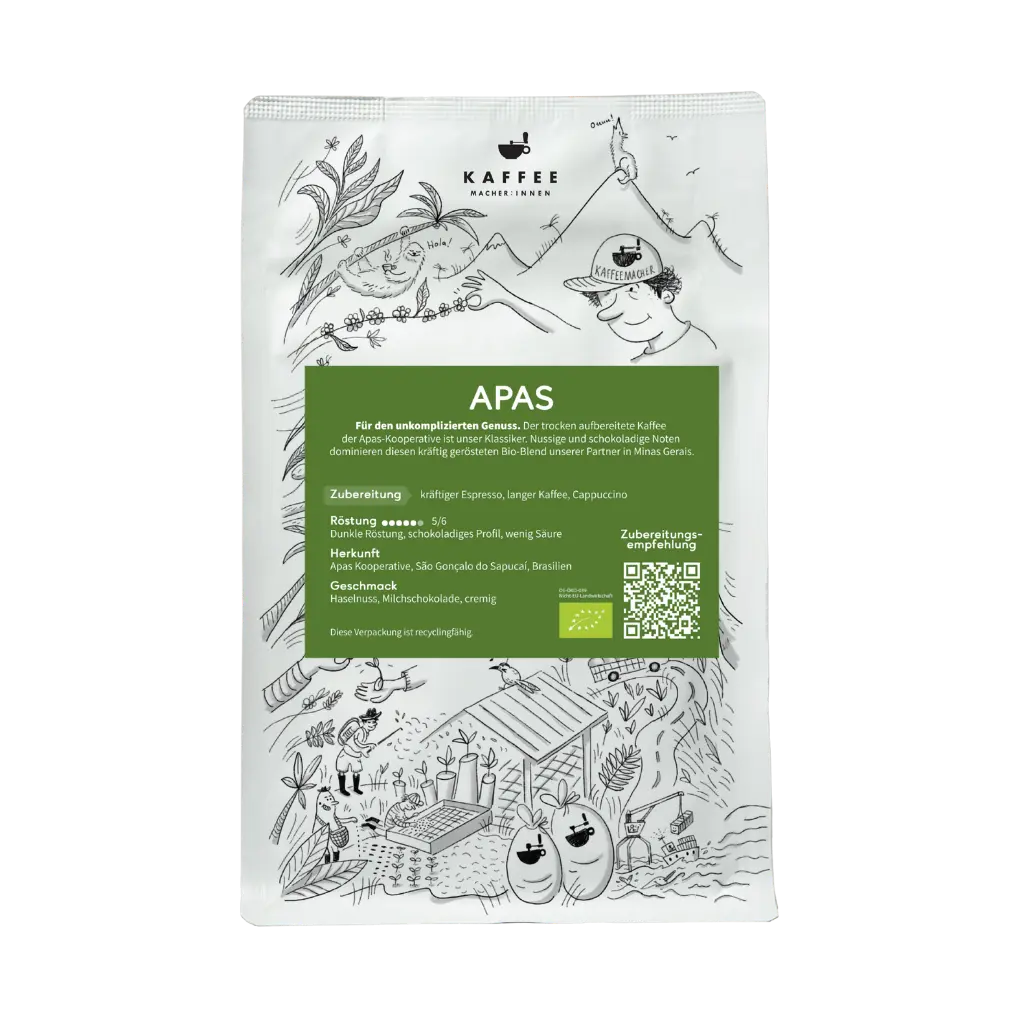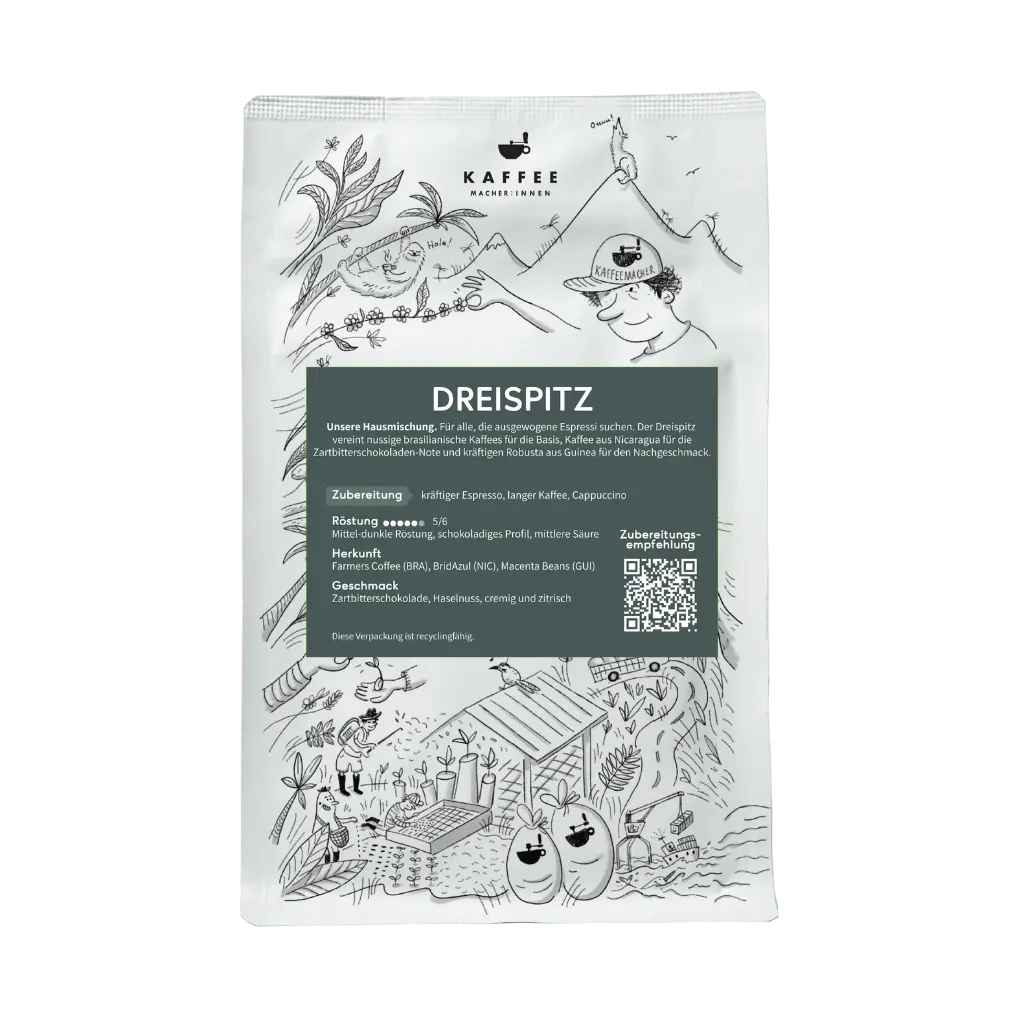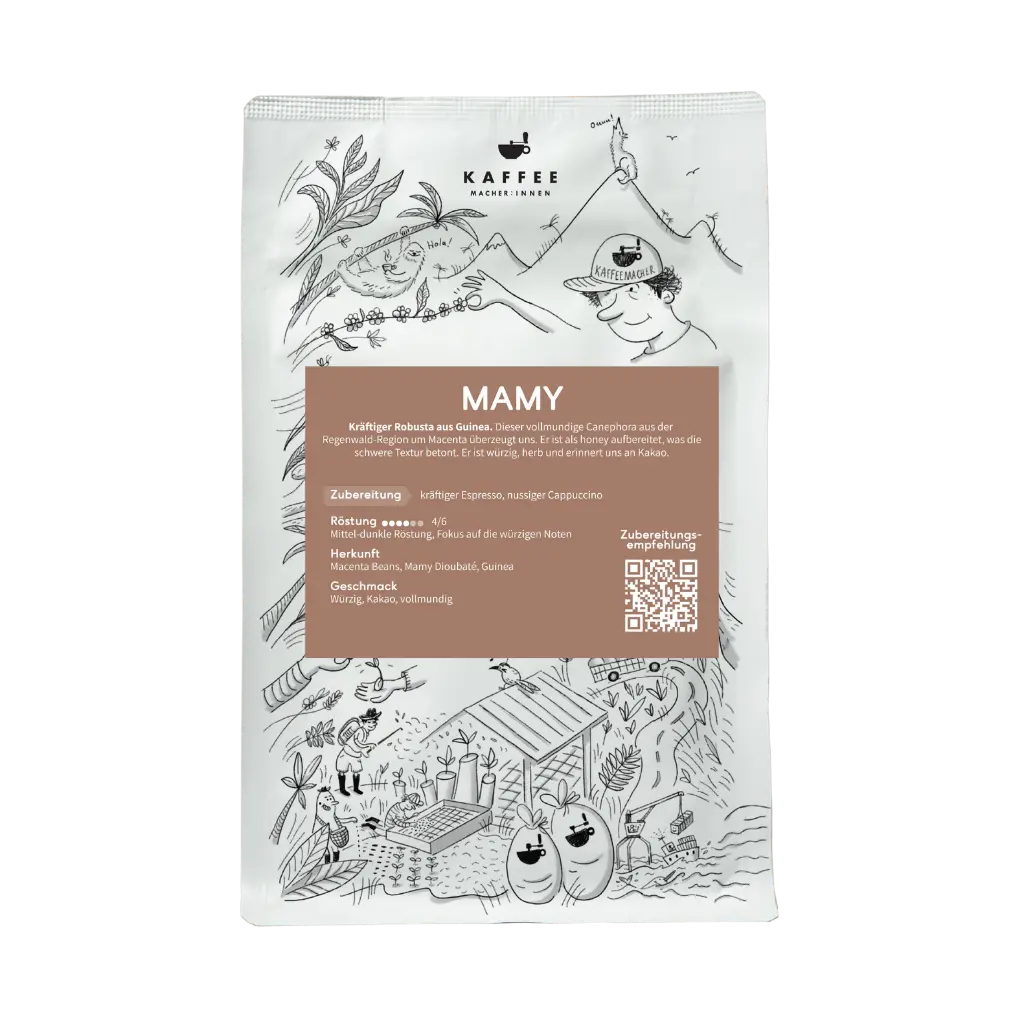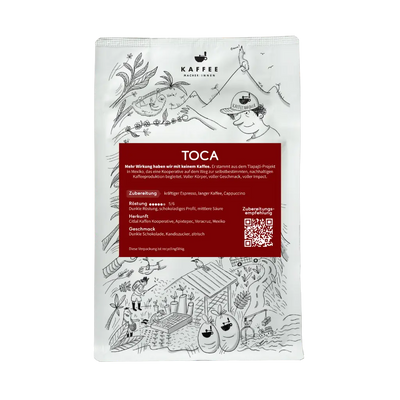Coffee doesn't grow in Switzerland, but in the so-called coffee belt, between the 23rd and 25th parallels, parallel to the equator. Central America, Brazil, Indonesia, India, and Vietnam are among the major producing regions, as are East Africa, including Ethiopia and Kenya. While coffee is omnipresent in our everyday lives, the social, ecological, and financial damage associated with coffee cultivation is far removed.
The Responsible Business Initiative directly affects coffee cultivation and trade, as well as the responsibility of roasters. Federal Councilor Karin Keller-Suter also cites coffee as an example in interviews <1><2> , but uses it as an argument against the initiative.
As a coffee roaster, the largest coffee school in Switzerland, and co-operator of a coffee farm in Nicaragua, we vehemently disagree with the statements made by Federal Councillor Karin Keller-Sutter.
Instead, we see important impetus emanating from the Responsible Business Initiative that can contribute to a more sustainable and future-oriented coffee industry. The Responsible Business Initiative represents an opportunity for the Swiss coffee industry to position itself for the long term, establish long-term trading relationships with producers, and secure access to the increasingly scarce resource of coffee.
The KVI is a historic correction for the coffee industry
The coffee industry has been able to hide behind anonymity for the past two centuries. The production conditions, purchasing prices, trading practices, and the asymmetrical power structure between producers in the Southern Hemisphere and the processing industry in much of the Northern Hemisphere went unchallenged for a long time – and if they were, much of it remained the same.
Recently, however, there have been increasingly positive developments and an increased commitment to transparency and fairness along the coffee chain within the international coffee roasting industry<3>.
Opponents of the KVI say that "global supply chains with thousands of suppliers are highly complex" and "mostly outside the control of the clients." <4> As a coffee roaster, we must disagree.
Each roaster has the responsibility to carefully set up and monitor its own supply chain and collaborate with partners who pursue a corresponding mindset. It is not outside the control of the client—in this example, the coffee roaster—whether or not a coffee can be sourced through a cleanly processed supply chain.
It all depends on the will and the ambition whether this path of entrepreneurship is taken.
The ability of coffee chains to become more traceable, resilient, and predictable is a development that is long overdue and has historically been treated rather laxly. The KVI represents a correction for the coffee industry with the potential to address the signs of the times.
Opportunities instead of risks for coffee roasters
For a growing number of smaller and larger roasters, the KVI has little or no impact. These roasters source coffee directly or semi-directly (through intermediaries), build long-term relationships with coffee producers, and maintain constant communication both by telephone and through travel to the coffee-growing countries.
The decision to source directly is primarily driven by smaller roasters' desire to share responsibility. In many cases, higher prices are paid for green coffee, which are not based on the coffee market.
The larger the roaster, the more green coffee it purchases. This indirectly means it also deals with a larger number of production and trading partners. While this also increases the effort involved, this does not absolve the roasters of their responsibility. Roasters have the duty to select green coffee suppliers conscientiously and carefully. Consumers should be able to trust that their coffee has been produced responsibly.
The Responsible Business Initiative provides a complementary impetus that can help sharpen our focus on risks on coffee farms. It forms a foundation for targeted dialogue with trading partners. The Responsible Business Initiative is a necessary wake-up call for the coffee industry and the coffee trade to focus more on the sustainability of the value chain.
Such a trade relationship represents an opportunity, not a risk. Due to growing coffee consumption in new markets like China and India, and changing growing conditions due to climate change , the coffee industry faces a shortage of high-quality coffee over the next 15 years. Reliable, sustainable, and shared-responsibility-based trade relationships ensure roasters' access to the increasingly scarce coffee resource.
Philipp Schallberger and Benjamin Hohlmann
<2> SRF ARENA


























